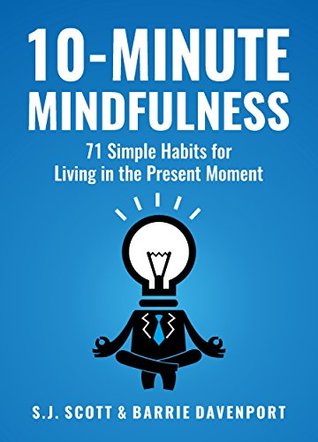More on this book
Community
Kindle Notes & Highlights
by
S.J. Scott
Read between
September 12 - October 6, 2017
“Life can be found only in the present moment. The past is gone, the future is not yet here, and if we do not go back to ourselves in the present moment, we cannot be in touch with life.”
As Buddhist meditation teacher Sharon Salzburg reminds us, “Mindfulness isn’t difficult. We just need to remember to do it.”
Rumination is a maladaptive form of self-reflection that has an addictive quality. When you’re constantly “in your head,” looping negative thoughts, brooding, and thinking about the past, you put yourself at a much greater risk for mental health problems like depression and anxiety.
The practice of detachment and non-judgment of anxious thoughts and feelings helps lessen fearful reactivity to the thoughts.
Sit down with a pad of paper and a pen (or your favorite note-taking app) and make a detailed list of the habits you want to add or change.
You’ll find that some habits are easy to build while others require more effort. So, our advice is to commit to a few mindfulness habits for the next thirty days at a minimum.
Even ten extra minutes in the morning can give you time to plan your day, practice a short morning meditation, or write a gratitude list.
A body scan is a meditative practice in which you focus on each part of every area, often beginning at the toes and moving to the head. The key here is to train your attention on each specific part for a moment and pay close attention to how you feel.
One of Barrie’s most consistent morning habits is to drink a full glass of water as soon as she goes to the bathroom sink after awakening.


